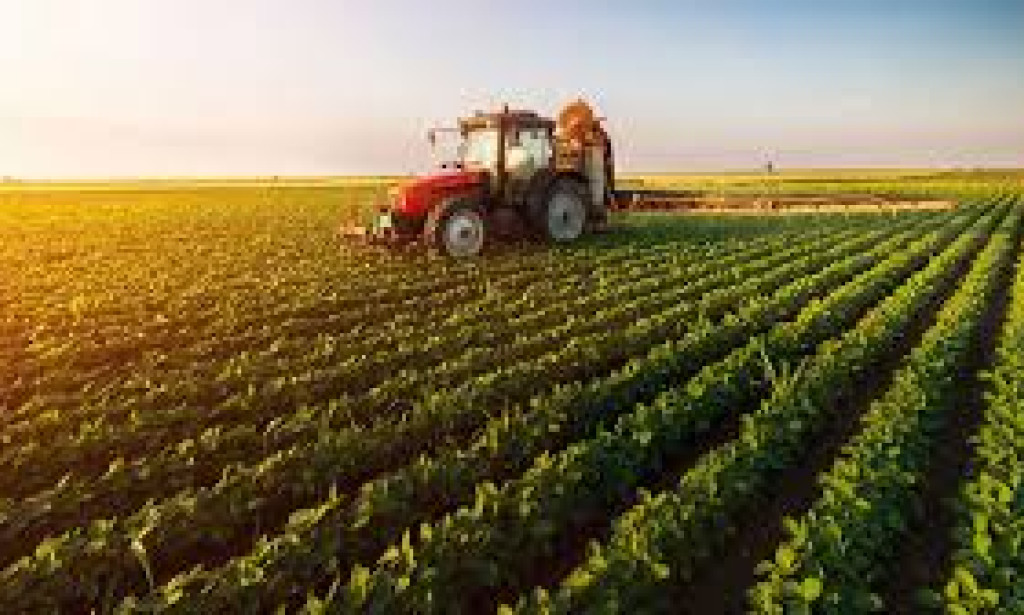
Agriculture plays a vital role in Pakistan’s economy, contributing around 23% to the country’s GDP and employing nearly 38% of the labor force. It remains the backbone of Pakistan’s rural economy, supporting millions of households. However, despite its importance, the sector faces numerous challenges, including climate change, water scarcity, outdated farming techniques, and a lack of modern infrastructure.
Pakistan is blessed with fertile land and a diverse climate that supports the cultivation of various crops. The major crops grown in the country include wheat, rice, sugarcane, maize, and cotton. Wheat is the staple food of Pakistan and is grown on a large scale across the country. Rice is another essential crop, contributing significantly to exports, especially the world-famous Basmati rice. Sugarcane is a crucial cash crop that supports the sugar industry, while cotton serves as the backbone of the textile sector, Pakistan’s largest industrial sector.

In addition to major crops, Pakistan is a also produces a variety of fruits and vegetables, such as mangoes, oranges, apples, potatoes, and tomatoes. Mangoes from Pakistan are particularly famous worldwide due to their taste and quality. The horticulture sector has great potential for exports, but due to post-harvest losses and lack of cold storage facilities, a significant portion of produce goes to waste.
Livestock farming is another key component of Pakistan’s agricultural economy. It contributes around 60% to the overall agriculture sector, providing meat, milk, eggs, and leather. Cattle, buffaloes, goats, and poultry farming are widespread across rural areas. Pakistan is among the top milk-producing countries in the world, but the dairy sector still relies on traditional methods, resulting in lower productivity.

Despite the importance of agriculture, the sector faces several challenges that hinder its growth. One of the biggest issues is water scarcity. Pakistan is an agricultural country that relies heavily on the Indus River system for irrigation. However, due to inefficient water management and climate change, water availability is decreasing, putting immense pressure on farmers. The outdated canal system and lack of modern irrigation techniques lead to water wastage. There is an urgent need for the government to promote water conservation methods such as drip irrigation and rainwater harvesting.
Another major challenge is the use of outdated farming techniques. Many farmers still rely on traditional methods instead of modern agricultural practices. The use of high-yield seeds, fertilizers, and mechanized farming equipment is limited, mainly due to a lack of awareness and financial constraints. Small-scale farmers often do not have access to credit or government subsidies, making it difficult for them to invest in advanced farming techniques.
Climate change is also affecting Pakistan’s agriculture. Rising temperatures, irregular rainfall, floods, and droughts have become more frequent, impacting crop yields. The government and agricultural institutions must work together to introduce climate-resistant crops and promote sustainable farming practices to ensure food security.
In recent years, the government has taken some initiatives to improve the agricultural sector, such as providing interest-free loans to farmers, introducing modern irrigation techniques, and launching agricultural research programs.Agriculture plays a crucial role in Pakistan's economy, contributing approximately 23% to the country's GDP. It is the backbone of Pakistan's rural economy, providing livelihoods to around 40% of the workforce. The sector is diverse, encompassing crops like wheat, rice, cotton, and sugarcane, along with livestock farming. Agriculture not only supports food security but also drives exports, especially in textiles and other agrarian products. However, challenges such as water scarcity, outdated farming techniques, and climate change impact agricultural productivity. Despite these issues, agriculture remains essential for economic growth and poverty alleviation in Pakistan.



You must be logged in to post a comment.